Special Report
20 Ways to Help Your Body Adapt Quickly to Season Changes
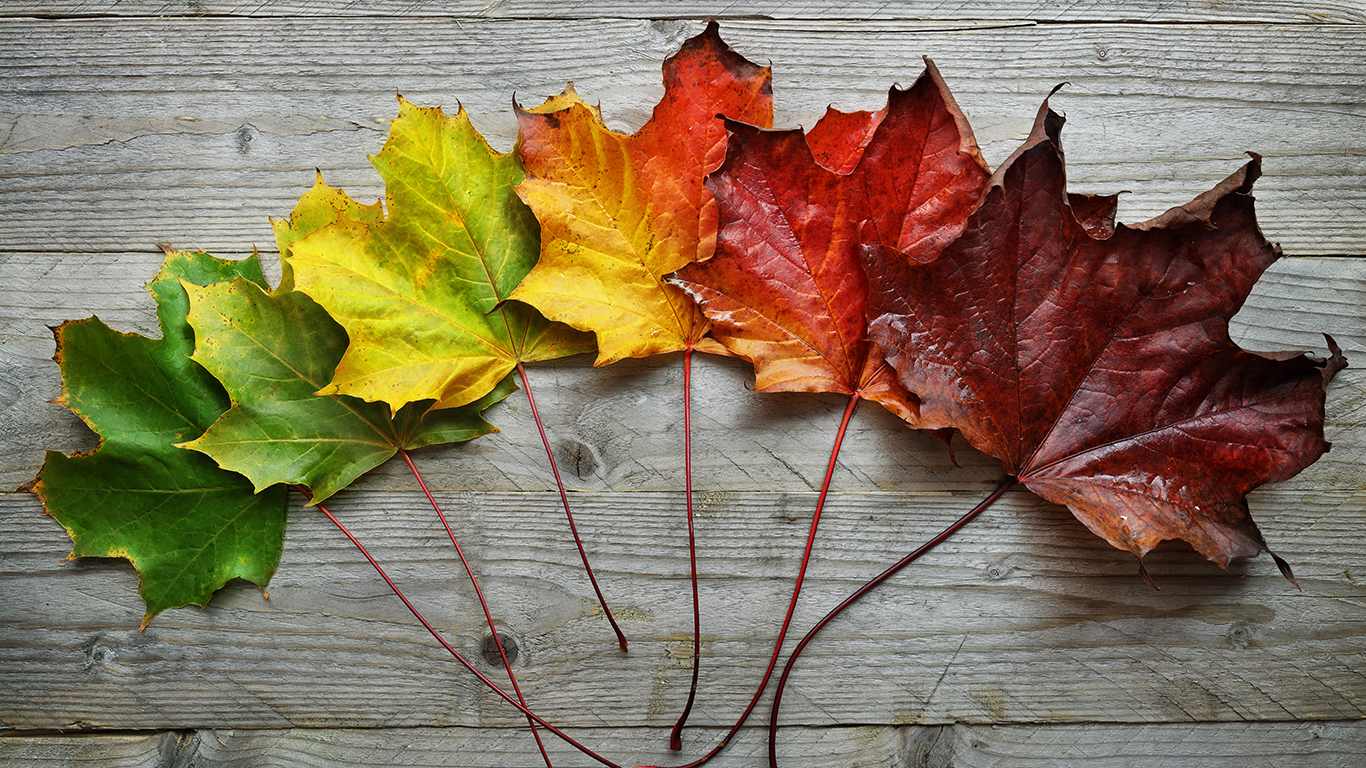
Published:
Last Updated:

Even though summer is not technically over until the end of September, the beginning of the month already brings with it several signs that beach weather will soon be behind us. First, there is Labor Day, known as the unofficial end of summer. Then, there is more rain, later sunrise time, and shorter days. The body has a lot to get used to, and it might need some help.
Gloomier weather and cooler temperatures in the fall can have an impact on sleep and therefore on overall health. The brain’s “circadian clock,” called the suprachiasmatic nucleus, or SCN, regulates the body’s natural 24-hour cycle, which controls body heat, hormone production, and sleep patterns. SCN needs triggers like daylight or darkness to keep working properly. So, when these triggers are changed even slightly, the circadian rhythm is likely to change, too.
There is some evidence that a disrupted circadian rhythm can contribute to the development of several clinical disorders, including metabolic syndrome and obesity, premature aging, diabetes, cardiac arrhythmias, immune deficiencies, and high blood pressure. All of these come with symptoms that are often too vague to notice. That’s why there are at least 25 symptoms people always ignore but never should.
You can minimize the risk of any of these conditions. Helping the body adapt to the differences in natural light, weather, and temperature that come when the seasons change may be a good place to start.
Click here for 20 ways you can help your body adapt to seasonal changes.

1. Take some time to adjust
Just like Rome wasn’t built in a day, habits don’t form and or break overnight. The body is a living organism that takes days to adapt to changes. Acclimating to seasonal change takes about two weeks in people who are generally healthy and don’t take certain medications. Allow your body the time it needs to adjust; each person is different.
[in-text-ad]
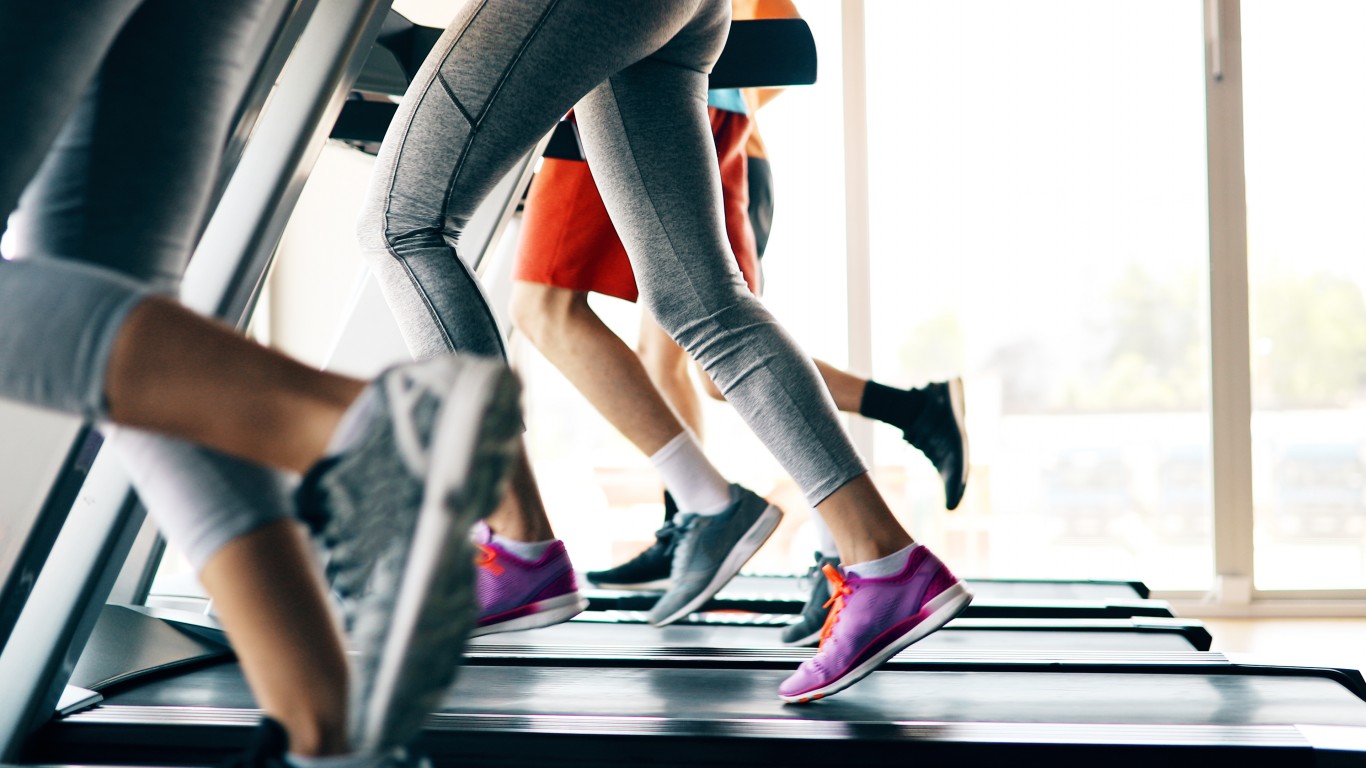
2. Exercise
It seems like you can never go wrong with exercising. It’s important not only in maintaining overall good health, proper weight, and in fighting depression, but also it may make a person “weather-proof” to seasonal changes, according to the American Heart Association. Working out on a regular basis helps people fall asleep quicker and sleep better. And sleep is important when the body is going through changes. You don’t even have to go all out — walking counts. And here are at least 30 reasons why walking is the best exercise.

3. Make sleeping enough hours a priority
When was the last time you woke up refreshed and not wanting to get back to sleep right away? If you can’t remember, you’re probably among the third of Americans who don’t get enough sleep, defined as seven or more hours a night. Being groggy, fatigued, and annoyed is common when you’re sleep deprived, and it can make seasonal transitions harder.
Sleep deprivation may not only contribute to chronic conditions such as obesity, high blood pressure, and diabetes, but it can also affect a person’s psychological state — here are 21 harmful ways lack of sleep affects the body and mind.

4. Eat seasonal foods
Eating foods in season — eating produce around the traditional time it has been harvested — is not just easier on the wallet, but on the body, too. Seasonal fruits and vegetables have more nutrients than out of season foods because they have been stored for less time. The body needs all the vitamins and minerals it can get in order to function properly or a vicious cycle of health problems can occur — these are the most common nutritional deficiencies in the U.S. Bonus points if you shop from local farms — you are helping to save the environment as local produce is not transported as far, causing less carbon emissions.
[in-text-ad-2]

5. Dress for the weather
It’s hard to believe that in just a few weeks from now people in certain states will need a jacket when they leave the house. Don’t resist the jacket or wearing longer clothes because you don’t want the summer to end – put on layers when necessary. The body suffers when it feels cold: it shivers, the skin dries out, and the muscles cool down, which means they are not as flexible and don’t function as well.

6. Stay well-hydrated
About 60% of an adult’s body is made of water, which explains why water is so important to the proper functioning of every organ. Water protects the tissues and joints, keeps the body’s temperature normal, and helps the body get rid of wastes, so being well hydrated helps the body adjust to any seasonal changes without it having to prioritize functions to stabilize itself. These are some common signs you’re way too dehydrated.
[in-text-ad]

7. Avoid driving
Seasonal changes may disrupt the body in such a way that some people may have trouble sleeping. Not getting behind the wheel may be a good idea if you’re one of those people — not just because lack of sleep has been linked to an increase in traffic accident rates, but also because you’ll be putting too much pressure on your body and mind. You’re using a lot of energy trying to stay focused to drive safely while tired when you should be resting and letting it acclimate to the new weather. What’s more, it’s important to get used to effects cold can have on the body. For example, colder temperatures can lower your brain’s reaction time.
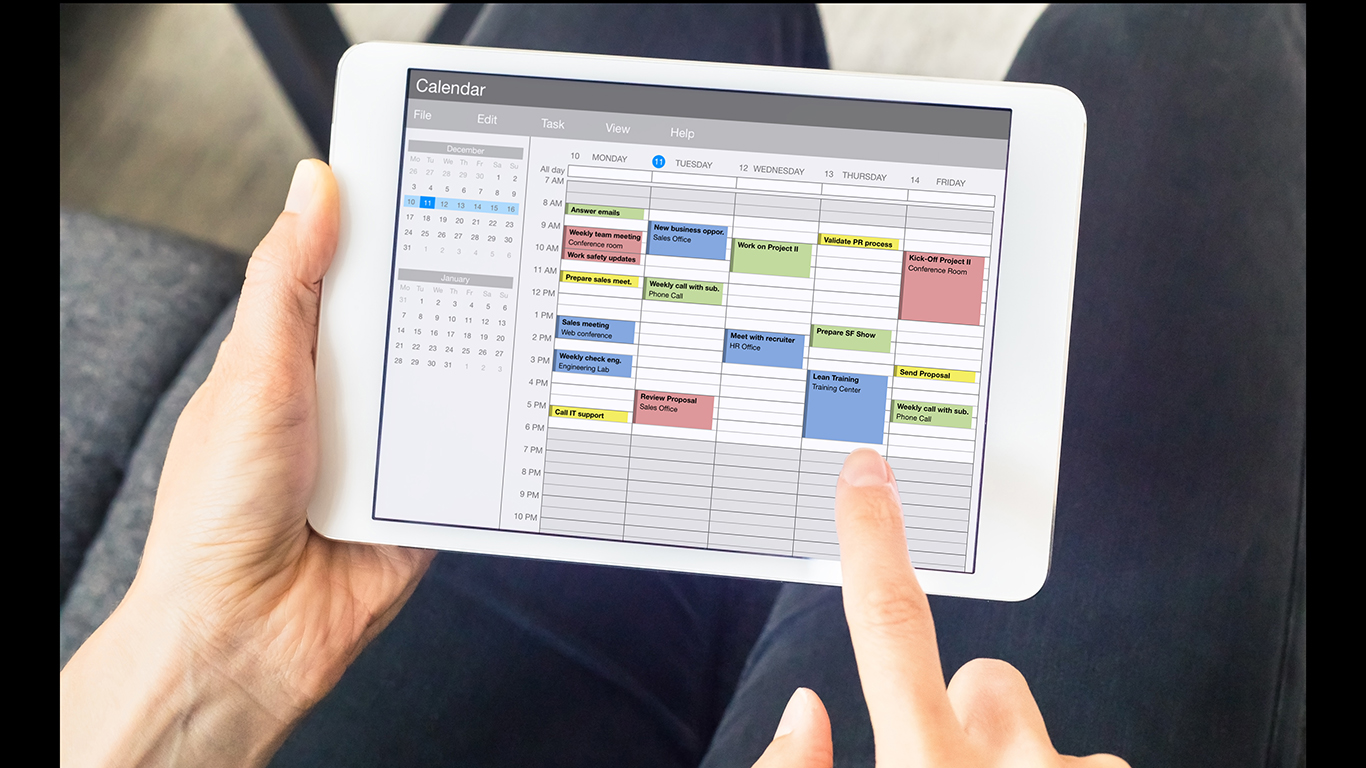
8. Make small changes to your schedule
Fall usually comes with some big changes in the schedule — the kids are going back to school, you spend fewer nights out, and perhaps more time taking the kids to afterschool programs. Generally, you may feel like you have less time for yourself. That’s added stress that can take a toll on your immune system and mental health. Don’t start many new endeavours that would add to scheduling changes at the same time but slowly work them into your routine.

9. Keep your routine effectively the same
Many people have a morning, going to work, or before bedtime routine. Some people always exercise at 5 a.m. or take a 30-minute walk after dinner. Take a gradual approach with any changes you have to make due to the new weather. Moving into colder months, consider going for a walk a few minutes earlier so you still get some daylight. And as summer approaches, try going to bed a few minutes later as the days get longer.
[in-text-ad-2]

10. Have a nighttime schedule
The months when the seasons change from warmer to colder weather is not the best time to start making major shifts in your nighttime routine. In addition to less daylight and colder temperatures, the body has to deal with mixed signals about when it’s time to fall asleep. A 2009 study published in BMC Public Health suggested that people with irregular sleeping habits had a significant increase in daytime sleepiness and had more difficulty falling asleep at night. This is what you should do for a better night’s sleep.
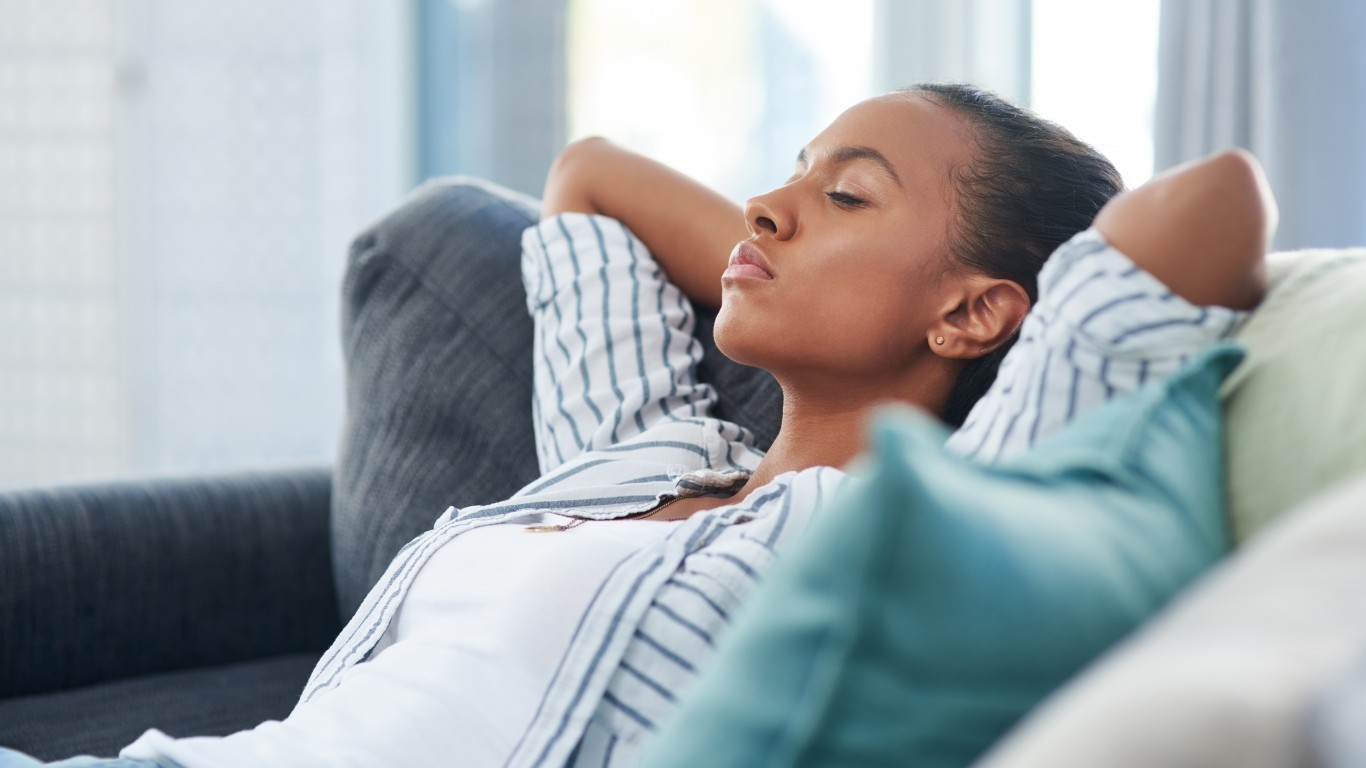
11. Avoid napping during the day
Fatigue is a normal side effect of the seasons changing. Changes in sunlight create changes in the body’s natural rhythm. But try to avoid naps in the late afternoon or later because they can mess with your ability to fall asleep at night, which may result in less sleep as well as feeling tired and cranky the next day. If you feel sleepy just a couple of hours before your usual bedtime, try exercising or stay active in some other way to trigger endorphins.
[in-text-ad]
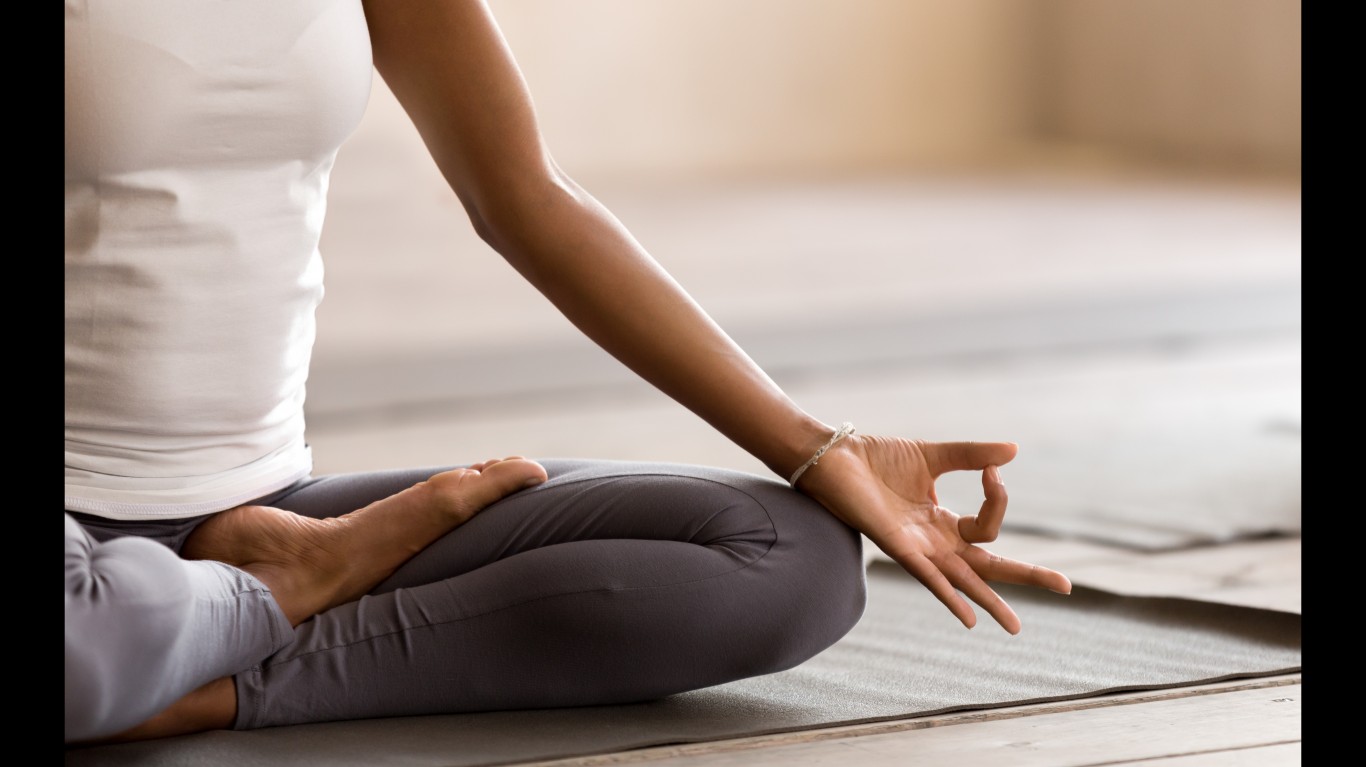
12. Meditate
There are many types of meditation. Some research has shown that meditation helps reduce stress and blood pressure, as well as helps better handle emotions and with insomnia. “Focus more on relaxation exercise rather than mindfulness,” Dr. Joshua Tal, a psychologist with a specialty in sleep disorders, told 24/7 Tempo in an interview. They will activate the parasympathetic system, a division of the nervous system, which decreases adrenaline levels and brings about a calm and relaxed feeling in the body, explained Tal.

13. Reduce coffee and alcohol intake
Alcohol is a depressant that can affect a person’s mood, behavior, and neuropsychological functioning. It can also disturb sleep. Caffeine, a stimulant, may be a bad idea when consumed in excessive amounts. It may lead to sleep deprivation and the body not recognizing when it needs rest. Are you drinking too much coffee? Here are 20 ways you can tell.

14. Take a warm bath
Helping the body adjust to environmental changes has a lot to do with letting it rest and being comfortable. Taking a warm bath can help. Body temperature naturally dips at night, beginning about two hours before sleep, reaching its lowest point in the early morning, around 4 a.m. That’s why artificially raising your temperature by taking a warm bath has been known as a remedy for people with issues falling asleep. The drop in temperature right after the bath is a signal to your body that it’s time to sleep.
[in-text-ad-2]
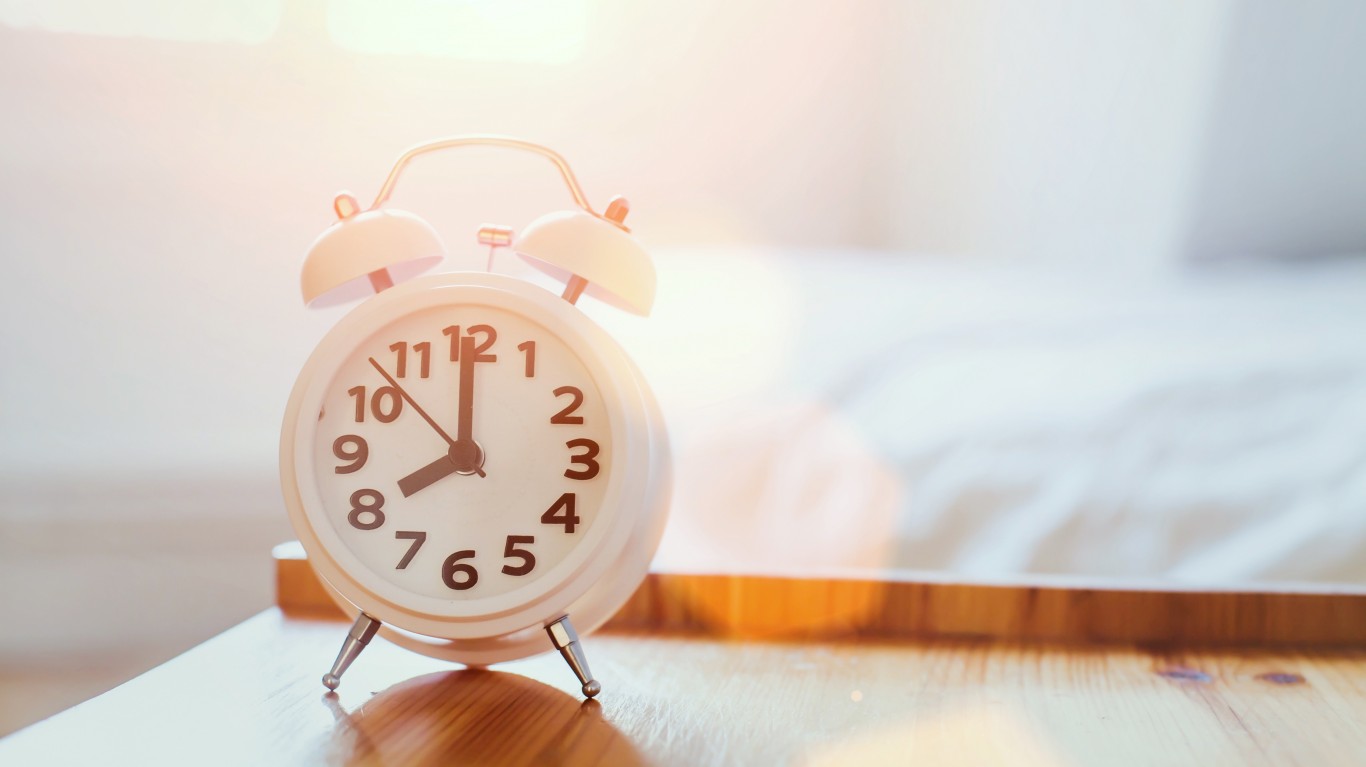
15. Wake up at the same time every day
The fall season change comes with several often unwelcome phenomena — less daylight, colder weather, more rain — that can mess with a person’s circadian rhythm. To help keep the body’s natural sleep-wake cycle undisturbed, try having a regular sleep pattern, which means waking up at the same time every day and also on weekends. Some of the benefits of waking up at the same time every morning include less insomnia and irritability, better mood, decreased pain, and better immune function.

16. Don’t snooze
When you first hear the alarm clock and wake up, the body is getting ready to get up and go. You may want to catch some extra zzz’s by hitting the snooze button, but the extra 10-15 minutes of sleep you might get is not REM sleep, which is the restorative sleep the body needs — especially during seasonal changes when the sleep cycles are more likely to be disrupted. Try setting the alarm for a later time. Disrupting REM sleep, which occurs later in the sleep cycle, by snoozing a few times can lead to increased heartbeat and blood pressure.
[in-text-ad]

17. Eat the right foods
Healthy food choices help support healthy sleep cycles and can be especially helpful while adapting to seasonal change. Some people with sleep problems take supplements containing melatonin, also known as the “sleep hormone.” It is naturally produced by the body’s pineal gland when it gets dark. When the levels of melatonin in your blood increase, you start to feel sleepy and less alert. You may want to consider certain foods that contain melatonin before you pop that pill. Such foods include nuts, cottage cheese, milk, cherries, bananas, pineapples, and oranges.

18. Turn off all electronics
Turning off electronics before going to bed helps smooth seasonal transition by way of improving sleep. Do your body and mind a favor and put all electronic devices – including the beloved cell phone – outside the bedroom. And forget about laptops, tablets, and other enemies of sleep. The brightness from the screen prevents the body from producing melatonin, which you need to fall asleep. Also, you’re coaching your body to stay awake while in bed. The result can be disrupted sleep, biological rhythm, and attention abilities.

19. Expose yourself to natural light
Because natural sunlight offers a variety of physical health benefits and can also change dramatically in the course of a year, take care to make sure you’re getting the right amount of it. It puts you in a better mood and is a natural source of vitamin D, which some research shows can help fight inflammation in the body. It may help boost the immune system, which is helpful when the body has to adapt to any changes, and even delay the onset of diabetes. Here are 14 other benefits you never knew sunshine offers.
[in-text-ad-2]

Don’t eat too late
While eating late is not likely to lead to weight gain – one of at least 28 common weight loss myths people should stop believing – it may not be a good idea for sleeping purposes. Every time food is consumed gastric acid is secreted in the stomach, and the body has to be awake to get rid of it. Otherwise, the acid might end up in the esophagus, leading to heartburn and inflammation. Both of these can put a lot of stress on the body and take a toll on your sleep, which can make adapting to seasonal change even more difficult.
Want retirement to come a few years earlier than you’d planned? Or are you ready to retire now, but want an extra set of eyes on your finances?
Now you can speak with up to 3 financial experts in your area for FREE. By simply clicking here you can begin to match with financial professionals who can help you build your plan to retire early. And the best part? The first conversation with them is free.
Click here to match with up to 3 financial pros who would be excited to help you make financial decisions.
Thank you for reading! Have some feedback for us?
Contact the 24/7 Wall St. editorial team.